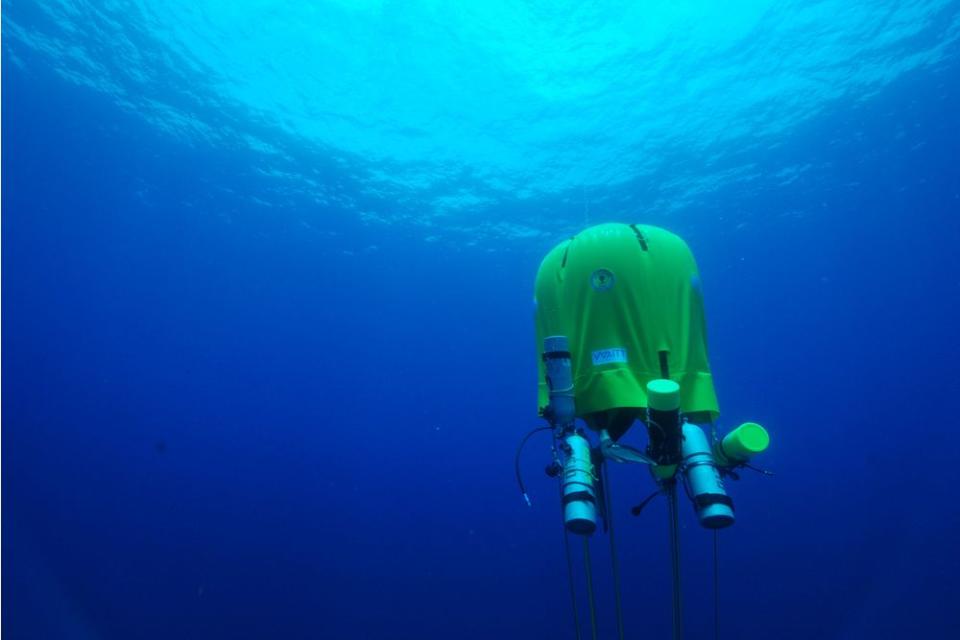The World’s First Ocean Tent Lets You Eat and Sleep Underwater
From the earliest Scuba equipment to the world’s first underwater villa, humans have been dreaming up new ways to experience our vast and mysterious oceans for centuries. And while the latest invention might initially raise eyebrows, you’ll want to hear this idea out.
The Ocean Space Habitat is a submersible tent of sorts, designed to be quickly and temporarily deployed in the ocean. The brainchild of National Geographic explorer Michael Lombardi and NYU professor Winslow Burleson, the tent is primarily geared toward divers and scientists who want to go deeper and stay submerged for longer periods than regular SCUBA gear allows. The concept, says Burleson, “is like turning a short hike in the woods into a weekend-long camping excursion. The habitat allows you to do more of what you’re coming for, whether you’re a photographer or coral researcher or citizen scientist.”

With the Ocean Space Habitat, divers who would typically need to surface quicker due to dwindling air supplies are able to conserve oxygen by taking mini breaks. In science missions, Lombardi notes, this would turn often unproductive decompression time (when deep divers take lengthy pauses to acclimate to the ocean’s changing pressure) into useful work time. But the inflatable dry chamber, where divers are able to remove gear, can also be used as a pit stop for chatting, eating, and even napping. And, perhaps the best part, is that the underwater device packs up like a regular tent and is able to be toted to a new subaquatic destination. “I like to think [it offers] an opportunity for a truly immersive experience,” Lombardi told National Geographic.
While the habitat, recently patented, is still in the early stages, plans are to make it available to purchase to the science community and anyone else who’s eager to give this unique experience a try. “Imagine if a tourist, normally limited to a one-hour dive, could stay under through that magical transition from sunlight to twilight to darkness—with all the life that emerges,” says Burleson. “People could experience the ocean in a whole new way.”
Related: Scientists Have Discovered the Real Reason Whales Jump:


